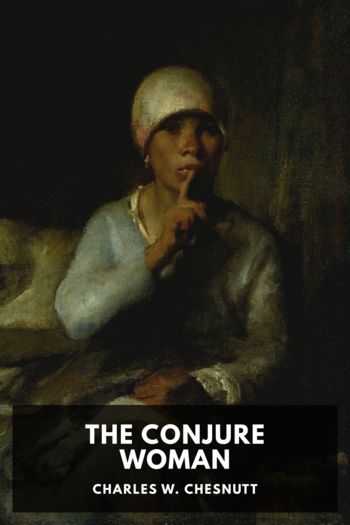The Lives of the Caesars, Suetonius [best book club books for discussion .TXT] 📗

- Author: Suetonius
Book online «The Lives of the Caesars, Suetonius [best book club books for discussion .TXT] 📗». Author Suetonius
Backed therefore by his father-in-law and son-in-law, out of all the numerous provinces he made the Gauls his choice, as the most likely to enrich him and furnish suitable material for triumphs. At first, it is true, by the bill of Vatinius he received only Cisalpine Gaul with the addition of Illyricum; but presently he was assigned Gallia Comata as well by the senate, since the members feared that even if they should refuse it, the people would give him this also. Transported with joy at this success, he could not keep from boasting a few days later before a crowded house, that having gained his heart’s desire to the grief and lamentation of his opponents, he would therefore from that time mount on their heads;22 and when someone insultingly remarked that that would be no easy matter for any woman, he replied in the same vein that Semiramis too had been queen in Syria and the Amazons in days of old had held sway over a great part of Asia.
When at the close of his consulship the praetors Gaius Memmius and Lucius Domitius moved an inquiry into his conduct during the previous year, Caesar laid the matter before the senate; and when they failed to take it up, and three days had been wasted in fruitless wrangling, went off to his province. Whereupon his quaestor was at once arraigned on several counts, as a preliminary to his own impeachment. Presently he himself too was prosecuted by Lucius Antistius, tribune of the commons, and it was only by appealing to the whole college that he contrived not to be brought to trial, on the ground that he was absent on public service. Then to secure himself for the future, he took great pains always to put the magistrates for the year under personal obligation, and not to aid any candidates or suffer any to be elected, save such as guaranteed to defend him in his absence. And he did not hesitate in some cases to exact an oath to keep this pledge or even a written contract.
When however Lucius Domitius, candidate for the consulship, openly threatened to effect as consul what he had been unable to do as praetor, and to take his armies from him, Caesar compelled Pompeius and Crassus to come to Luca, a city in his province, where he prevailed on them to stand for a second consulship, to defeat Domitius; and he also succeeded through their influence in having his term as governor of Gaul made five years longer. Encouraged by this, he added to the legions which he had received from the state others at his own cost, one actually composed of men of Transalpine Gaul and bearing a Gallic name too (for it was called Alauda),23 which he trained in the Roman tactics and equipped with Roman arms; and later on he gave every man of it citizenship. After that he did not let slip any pretext for war, however unjust and dangerous it might be, picking quarrels as well with allied, as with hostile and barbarous nations; so that once the senate decreed that a commission be sent to inquire into the condition of the Gallic provinces, and some even recommended that Caesar be handed over to the enemy. But as his enterprises prospered, thanksgivings were appointed in his honour oftener and for longer periods than for anyone before his time.
During the nine years of his command this is in substance what he did. All that part of Gaul which is bounded by the Pyrenees, the Alps and the Cévennes, and by the Rhine and Rhone rivers, a circuit of some 3,20024 miles, with the exception of some allied states which had rendered him good service, he reduced to the form of a province; and imposed upon it a yearly tribute of 40,000,000 sesterces.25 He was the first Roman to build a bridge and attack the Germans beyond the Rhine; and he inflicted heavy losses upon them. He invaded the Britons too, a people unknown before, vanquished them, and exacted moneys and hostages. Amid all these successes he met with adverse fortune but three times in all: in Britain, where his fleet narrowly escaped destruction in a violent storm; in Gaul, when one of his legions was routed at Gergovia; and on the borders of Germany, when his lieutenants Titurius and Aurunculeius were ambushed and slain.
Within this same space of time he lost first his mother, then his daughter, and soon afterwards his grandchild. Meanwhile, as the community was aghast at the murder of Publius Clodius, the senate had voted that only one consul should be chosen, and expressly named Gnaeus Pompeius. When the tribunes planned to make him Pompey’s colleague, Caesar urged them rather to propose to the people that he be permitted to stand for a second consulship without coming to Rome, when the term of his governorship drew near its end, to prevent his being forced for the sake of the office to leave his province prematurely and without finishing the war. On the granting of this, aiming still higher and flushed with hope, he neglected nothing in the way of lavish expenditure or of favours to anyone, either in his public capacity or privately. He began a forum with the proceeds of his spoils, the ground for which cost more than a hundred million sesterces. He announced a combat of gladiators and a feast for the people in memory of his daughter, a thing quite without precedent. To raise





Comments (0)